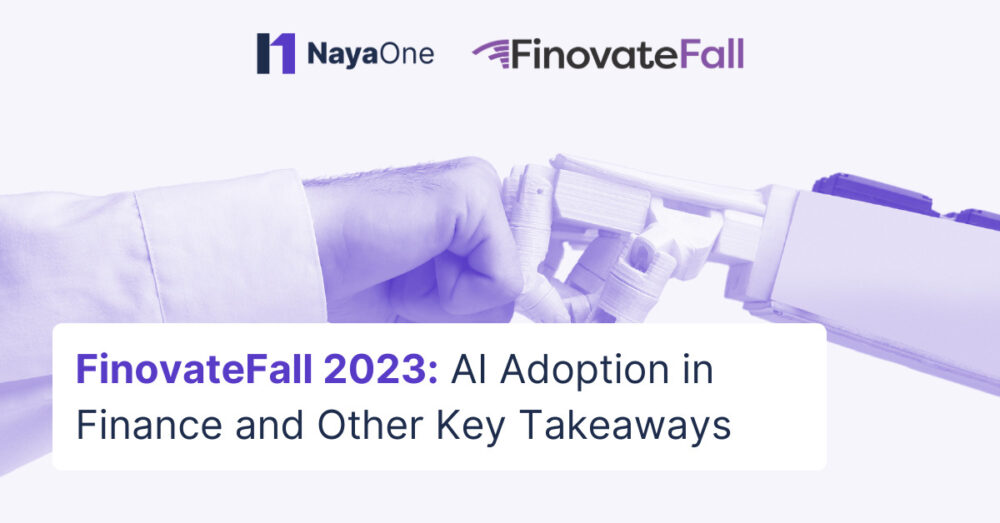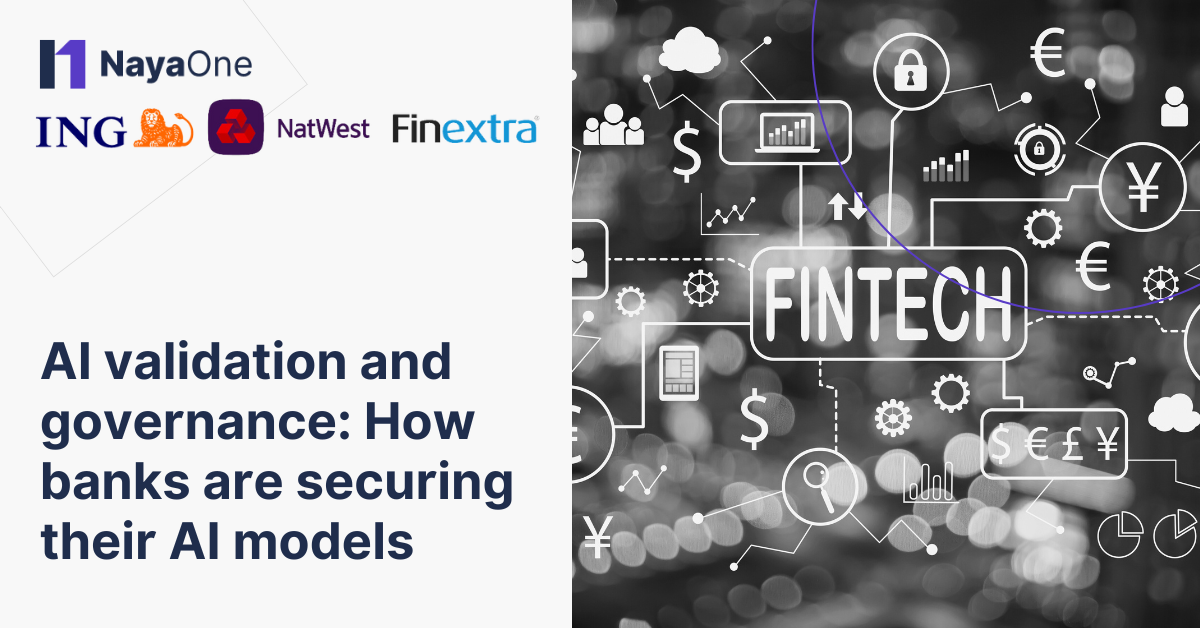
Karan Jain
CEO
From September 11-13, 2023, leading fintech innovators gathered in New York’s Time Square to showcase their latest product developments. With 70+ innovative demos and 100+ expert speakers, the event empowered finance executives with information on the latest trends and innovations that are set to shape the industry in the years to come.
AI, along with its potential, challenges, and value in the financial sector, was at the heart of FinovateFall 2023.
Below, we’ve compiled the top ten takeaways from FinovateFall 2023 for finance leaders.
10 Key Takeaways from the FinovateFall 2023 Conference
1. AI Adoption and Value Creation
There has been lots of hype associated with AI, yet its impact is undeniably real, especially in terms of enhancing operational efficiency and productivity. Startups specialising in AI solutions are catching the eye of established industry players keen on harnessing innovative concepts. This dynamic is proving to be fertile ground for generating substantial value, both in terms of fostering innovation and boosting revenue streams.
Nonetheless, AI adoption isn’t easy for many organisations. Financial institutions like Sumitomo Mitsui Banking Corp (SMBC) are proceeding cautiously with AI technologies. SMBC has adopted a comprehensive approach that spans various tiers of the organisation. It encompasses high-level boardroom strategies, agile governance practices, and dedicated incubation functions.
Such a multifaceted strategy ensures that AI integration remains under control while still creating an environment that fosters innovation. In addition, experimentation is essential in building AI proficiency within organisations and understanding potential impact of AI on the financial landscape.
2. Challenge to Overcome Legacy Systems
According to a live poll, the greatest challenge for incumbent banks in their digital transformation projects is overcoming legacy systems and thinking. A staggering 85% of the attendees indicated that as their greatest obstacle.
To address this challenge, Jo Jagadish, Head of Corporate Products and Services at TD Bank, emphasises a multifaceted approach. TD focuses on modernising its tech stack by creating a resilient and flexible middleware layer that simplifies complex legacy systems. The organisation hides this complexity from the end-users by building plug-and-play capabilities on the front-end and ensuring a seamless user experience.
Additionally, Jagadish acknowledges the necessity of making significant investments to replace legacy technology. He also emphasises the importance of both abstracting complexity and making strategic decisions for successful digital transformation.
3. Promise and Pitfalls of Generative AI
Generative AI is renowned for its capacity to generate fresh and unique content within seconds. Due to this, it holds remarkable transformative potential that goes beyond content generation. Generative AI also has many other applications. It can automate tasks such as summarising complex earnings calls and streamlining information processing across various domains to name a few.
However, it’s essential to acknowledge that generative AI isn’t devoid of idiosyncrasies. On some occasions, it yields inaccurate results, commonly referred to as “AI hallucination.” Due to this, it’s vital that organisations do not blindly rely on generative AI chatbots. AI literacy and human oversight are essential to maximise accuracy.
4. Exploring Fresh Avenues for Mergers and Acquisitions
5. Growing Need for Strong and Reliable Cybersecurity Solutions
Throughout the conference, multiple discussions centered around cybersecurity, along with its impact on product development and customer experience. They touched upon various aspects, ranging from advancements in multi-factor authentication to the growing role of AI-powered cybersecurity tools.
Additionally, multiple experts agreed on the need to move beyond conventional password-based security measures. Some experts also pointed out the potential of blockchain technology within the fintech space, particularly its capacity to bolster cybersecurity strategies.
6. Ethics and Financial Literacy in Embedded Finance
Embedded finance firms are increasingly leveraging AI to seamlessly provide financial products at the point of sale. However, beneath this convenience lies an ethical concern. A speaker from a prominent embedded finance platform highlighted scenarios where their product may be misused. Such seamless offerings can encourage individuals to undertake potentially burdensome debt or require them to make significant financial decisions in a high-pressure, split-second environment.
As the global credit card debt, interest rates, and living expenses increase, CFOs seek new ways to promote financial literacy. This can provide users with the knowledge and skills necesary to make informed financial decisions.
7. Upskilling and Continuous Innovation
Jacqueline Baker, a leadership consultant who attended the event to introduce her latest book, emphasised the importance of continuous innovation. This can prevent complacency within the ever-evolving realm of technology, particularly in fintech. To accomplish that, executives need to continuously invest in upskilling their teams.
8. AI-Powered Solutions that Focus on Improving Customer Experience
Many CFOs are concerned about how technology will influence their banking partnerships and customer experience. Therefore, fintech developers are providing innovative solutions, such as:
- AI-driven predictive routing that enhances the individual user experience on online banking platforms,
- Anticipatory engagement for specialised product offerings,
- Embedded financial products, and
- AI-powered banking solutions that proactively manage and optimise both personal and business bank accounts.
9. Regulatory Concerns Regarding AI-Generated Content
Although the potential of AI is vast, regulatory concerns can impede its widespread adoption. The ongoing debate primarily revolves around AI-generated content and its implications for data security. To navigate this terrain, many advocate for controls similar to those employed for human-generated content. By doing so, organisations can more effectively manage and mitigate the potential risks that come with AI-generated content while ensuring compliance with regulatory requirements.
10. AI Risk Management Frameworks
As businesses increasingly adopt AI, it becomes necessary to revisit previously established AI risk management frameworks. While these frameworks can serve as a reliable starting point for organisations seeking to incorporate AI into their operations, it’s crucial for businesses to remain agile and adjust them on a regular basis. This can help shape their long-term success with AI and effectively manage AI-related risks.
Final Thoughts
The FinovateFall 2023 conference emphasised the pivotal role of AI in shaping the financial industry’s future. While it offers immense potential, it’s essential that financial institutions embrace AI with care and expert guidance. This can help them avoid potential data safety, compliance, stagnation, and other challenges.
Luckily, you don’t have to do it alone. NayaOne’s Sandbox-as-a-Service allows your organisation to access, test, and deploy hundreds of fintechs. Embrace innovation with confidence while relying on us for expert guidance.





